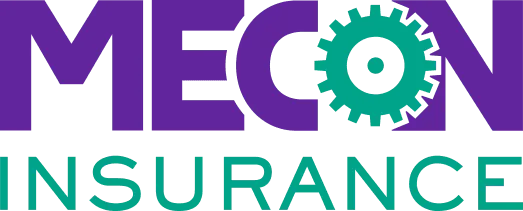Mobile Mechanic Insurance in Australia: Protecting Your Business on the Move
Mobile mechanics provide invaluable services across Australia, bringing vehicle repairs and maintenance directly to the customer's doorstep. This convenience sets mobile mechanics apart but also exposes them to a unique set of risks different from traditional workshop settings. Mobile mechanic insurance is a term for a package of insurance policies specifically designed to address these risks, offering a crucial financial safety net. Without the right cover, unexpected accidents, theft, or errors could severely impact your business finances.
This guide explores why insurance is vital for mobile mechanics operating in Australia, the essential types of cover to consider, common risks encountered on the job, factors influencing insurance costs, and answers to frequently asked questions.
Why is Insurance Essential for Mobile Mechanics?
Operating as a mobile mechanic means navigating diverse work environments daily – from residential driveways to commercial car parks and roadside locations. This variability increases exposure to potential incidents.
Financial Protection: If something goes wrong – an injury to a third party, damage to customer property, theft of your tools, or a faulty repair leading to further issues – the costs can be substantial. Insurance provides the funds to cover legal defence costs, compensation payouts, repairs, or replacements, preventing a single incident from crippling your business financially. For example, accidentally scratching a client's luxury car while working or having a customer trip over your air hose could lead to significant property damage or injury claims. Without adequate liability insurance, you would be personally responsible for these costs.
Professionalism and Trust: Holding the right insurance cover enhances your business's credibility. Customers feel more secure knowing that any accidental damage or injuries related to your work are covered. Increasingly, clients, especially commercial or fleet operators, may require proof of insurance (like a Certificate of Currency for Public Liability) before allowing you onto their premises or engaging your services.
Peace of Mind: Knowing you are protected against the key risks associated with your trade allows you to focus on providing excellent service without the constant worry of potential financial ruin from unforeseen events.
Consider these scenarios:
- A passerby in a public car park stumbles over your toolbox, resulting in an injury and a subsequent liability claim.
- While test-driving a customer's vehicle post-repair, you are involved in a collision causing damage to their car and another vehicle.
- Your van is broken into overnight, and your entire set of specialised diagnostic tools and hand tools are stolen, preventing you from working.
In each case, the right insurance policy could cover the associated costs, whereas being uninsured could force you to pay thousands of dollars out of pocket, potentially jeopardising your business's survival.
Key Risks Faced by Mobile Mechanics
Mobile mechanics encounter various risks daily, some shared with workshop mechanics and others unique to working on the go:
- Third-Party Injury or Property Damage: Working in uncontrolled environments increases the risk of injuring bystanders or damaging property not belonging to you. A dropped heavy tool could damage a client's driveway, or oil spillage could create a slip hazard.
- Theft or Damage to Tools and Equipment: Your tools are essential assets, often worth tens of thousands of dollars. Stored in your vehicle, they are prime targets for theft, a widespread issue affecting tradespeople across Australia. Significant tool theft incidents are reported regularly, making tool cover essential. Damage from accidents, fire, or water can also occur.
- Vehicle Accidents and Damage: Your work vehicle is your mobile base of operations. Extensive time spent driving between jobs increases the risk of accidents, potentially damaging your vehicle, tools inside, and causing injury. Theft or vandalism of the vehicle itself is also a concern.
- Faulty Workmanship or Professional Errors: Mistakes can happen. An incorrect repair could lead to vehicle failure or an accident. If you provide vehicle inspections or certifications (like safety certificates), an oversight could result in claims of negligence if an unsafe vehicle is passed, causing financial loss or injury later.
Understanding these risks highlights the need for tailored insurance solutions.
Essential Types of Insurance Cover for Mobile Mechanics
A comprehensive insurance strategy for a mobile mechanic typically involves several types of cover, often bundled into a Business Package. Key policies include:
Public Liability Insurance
This is arguably the most critical insurance for a mobile mechanic. Public Liability Insurance protects your business if your activities cause injury to a third party (excluding employees) or damage to their property. It covers legal defence costs and any compensation awarded.
In Australia, public liability policies for trades often include Products Liability cover. This protects you if parts you supply or install, or the work you perform (your "product"), causes injury or damage after you've completed the job.
Given you work on customer property and in public spaces, the potential for incidents is high. Examples include:
- Accidentally damaging a customer's garage door while maneuvering your van.
- A child tripping over your equipment left unattended in a driveway.
- Incorrectly fitting a component that later fails and causes damage to the customer's engine.
Public liability insurance steps in to cover the financial consequences of such events. Common cover limits are $5 million, $10 million, or $20 million. While $5 million might suffice for smaller domestic jobs, larger commercial clients or site access requirements often mandate $10 million or $20 million limits.
Important Considerations:
- Damage to Property Worked On: Standard policies might exclude damage to the specific item you are working on (e.g., the customer's car). Look for policies with an extension for "goods in physical or legal control" or similar wording to ensure you're covered if you accidentally damage the vehicle you are servicing.
- Driving Risk Extension: If you test-drive customer vehicles, ensure your policy includes cover for liability arising while driving a client's car. Standard public liability often excludes this.
While not legally mandated everywhere in Australia for mechanics, public liability insurance is considered essential for operating professionally and responsibly.
Tools and Equipment Insurance
Your tools are indispensable. Tools and Equipment Insurance (often called General Property or Tools of Trade cover) protects against loss, theft, or accidental damage to your portable work gear.
Mobile mechanics face a high risk of tool theft due to tools being stored in vehicles. Tool theft is a major issue nationally, with significant losses reported by tradespeople annually. This insurance ensures you can replace stolen or damaged tools quickly, minimising downtime and income loss.
Coverage typically applies whether tools are at a job site, in transit, or stored securely. It can cover hand tools, power tools, diagnostic scanners, and other portable equipment vital to your work.
Key Points:
- Security Requirements: Insurers usually require evidence of forced entry for theft claims from vehicles (e.g., broken locks, smashed windows). Leaving tools unsecured or in an unlocked vehicle may void cover. Always secure your vehicle and tool storage.
- Inventory: Keep records (receipts, photos, serial numbers) of your tools to streamline any potential claims.
This cover helps ensure that a theft or accidental damage incident doesn't halt your business operations.
Commercial Motor Insurance
Your work vehicle (ute, van, truck) requires Commercial Motor Insurance. Personal car insurance policies generally do not cover vehicles used primarily for business purposes, and a claim could be denied if an accident occurs during work-related use if you only have personal cover.
Commercial vehicle insurance covers:
- Accidents while driving between jobs or carrying tools/parts.
- Theft or vandalism of the work vehicle.
- Damage to third-party property caused by your vehicle.
Policies can be tailored to cover vehicle modifications (toolboxes, racking) and offer options like hire car access during repairs to keep your business moving. Ensure you accurately disclose the vehicle's business use to your insurer.
Professional Indemnity Insurance
While not always essential for mechanics focused purely on hands-on repairs, Professional Indemnity (PI) Insurance is relevant if your services include advice, diagnostics, inspections, or certifications.
PI covers claims against you for financial loss suffered by a client due to your alleged professional negligence, errors, or omissions. Consider PI if you:
- Issue roadworthy or safety certificates.
- Provide pre-purchase vehicle inspection reports.
- Offer specialist diagnostic services or advice on modifications.
- Act as an expert consultant.
If an error in your inspection report leads a buyer to purchase a faulty vehicle, or incorrect advice causes financial loss, PI insurance can cover your legal defence costs and any compensation owed. Public liability typically covers physical damage or injury, whereas PI covers financial loss due to professional services or advice.
Factors Affecting Mobile Mechanic Insurance Costs
The cost of insurance for a mobile mechanic varies based on several factors:
- Coverage Choices: Higher liability limits (e.g., $20M vs $5M), lower excesses, and adding optional covers will increase the premium.
- Location: Premiums might be higher in areas with greater theft rates or storm exposure. State-based taxes and levies also affect the final price.
- Vehicle Details: For Commercial Motor insurance, the vehicle's type, age, value, and modifications, along with your driving history, influence the cost.
- Claims History: A history of frequent or large claims typically leads to higher premiums. A claim-free record often attracts discounts.
- Security Measures: Demonstrating good security practices (e.g., secure garaging for the vehicle, alarmed toolboxes) can sometimes positively influence premiums, particularly for theft cover.
- Business Turnover: Insurers often use annual revenue as an indicator of business size and activity levels, which can impact liability premiums.
- Policy Excess: Choosing a higher excess (the amount you pay towards a claim) generally lowers the premium, but ensure it's an amount you can comfortably afford.
While cost is a factor, ensuring you have adequate coverage from a reputable insurer is paramount.
Frequently Asked Questions (FAQ) about Mobile Mechanic Insurance
What insurance policies does a mobile mechanic typically need in Australia?
Most mobile mechanics need:
- Public Liability Insurance: Covers injury to third parties or damage to their property.
- Tools and Equipment Insurance: Covers theft, loss, or damage to your work tools.
- Commercial Motor Insurance: Covers your work vehicle used for business. Depending on your operations, you might also need:
- Professional Indemnity Insurance: If you provide advice, inspections, or certifications.
- Workers' Compensation Insurance: Legally required if you employ staff.
Is public liability insurance compulsory for mobile mechanics?
While not mandated by law for all mechanics across Australia purely to operate, Public Liability insurance is considered essential. Many clients, especially commercial ones, will require you to hold it, and operating without it leaves your business dangerously exposed to potentially bankrupting claims.
Are my tools covered if stolen from my vehicle?
Yes, provided you have Tools and Equipment Insurance. However, most policies require signs of forced entry into a securely locked vehicle or toolbox for theft claims to be paid. Always check your policy's specific security conditions and ensure you comply with them. Standard vehicle insurance does not cover tools inside.
As a mobile mechanic, do I need Professional Indemnity Insurance?
It depends on your services. If you only perform mechanical repairs, Public Liability often suffices for claims related to physical damage or injury caused by your work. However, if you provide advice, diagnostics, vehicle inspections, or issue certificates (e.g., roadworthy certificates), Professional Indemnity insurance is highly recommended to cover claims for financial loss due to errors or negligence in those professional services.
How can I potentially lower my mobile mechanic insurance costs?
- Maintain a good claims record: Fewer claims can lead to lower premiums over time.
- Implement strong security: Secure storage for tools and vehicles can reduce theft risk.
- Choose appropriate limits and excesses: Don't over-insure, but ensure limits are adequate. Selecting a higher excess can lower premiums but increases your out-of-pocket cost per claim.
- Bundle policies: Insurers often offer discounts for taking out multiple policies (e.g., a business package).
- Pay annually: Paying the premium upfront annually often avoids instalment fees.
- Review your cover regularly: Ensure your policy details reflect your current business operations.
Operating as a mobile mechanic offers flexibility and direct customer engagement. However, the unique risks require a robust insurance strategy. Having the right combination of covers protects your tools, vehicle, finances, and reputation, allowing you to work with confidence. It ensures that unforeseen accidents or losses don't derail your business, providing peace of mind and safeguarding your livelihood as you keep Australia's vehicles running smoothly.









